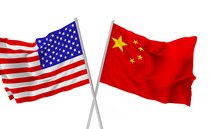The European Union will increase tariffs against Chinese electric cars as Western economies place protective barriers on their industries.

After a fresh round of elections last weekend, the European Union is expected to raise tariffs against Chinese electric vehicles this week. The new rules could be enforced from as early as July 4th in the world’s largest economic bloc.
Current tariffs on Chinese EVs sit at 10%, with analysts saying they could go as high as 50%. The most likely scenario, however, has EU-imposed tariffs climbing to 25-30%.
The European Commission launched an investigative probe into China’s electric vehicle industry last year. Brussels’ main worry is that China’s extensive subsidies and cheap labor costs would make Chinese electric cars too cheap when compared to their European equivalents.
The President of the European Commission Ursula Von Der Leyen often voiced her concerns about China’s EV overproduction, fearing for the European car industry. Von Der Leyen’s party, the European Popular Party (EPP) gained seats at the latest EU election. She is widely expected to be sworn in for a second term as President.
The United States also raised tariffs on Chinese EVs. The Biden administration brought them from 25% to 100%, implementing a much stronger protectionist stance against Chinese products. “The 100% tariff is just pure protectionism, regressive and stifles innovation, and prevents a competitive landscape for the consumer," Matthias Schmidt of Schmidt Automotive Research said.
“If the EU imposes tariffs of no more than 25%, it will be more about leveling the playing field, and evening out the 30% cost advantage Chinese manufacturers have."
China’s EV rise
China boosted its electric car industry over the past 20 years, gradually becoming the world’s largest manufacturer and market for EVs.
Firms like BYD, Nio, Li Auto, and Xiaomi are now at the forefront of EV innovation, replacing “old” giants like Elon Musk’s Tesla. In early 2024, Tesla lost the top spot as the world’s largest EV manufacturer to BYD.
So far, however, Chinese EVs rarely retail outside their domestic market. That, however, is likely going to change soon as Chinese manufacturers announce upcoming internationalization moves.
At the moment, the starting price of a BYD Seagull in China is roughly $9,600, far lower than the Tesla Model Y’s $43,990 in the United States. Once exported to Europe, BYD models will likely increase in price because of safety regulations, but will still be the cheapest EVs on the market.
It’s unclear how much Western subsidies will impact China’s EV sales abroad. Analysts also point out that these tariffs will also hit some European manufacturers. Firms like Volkswagen, BMW, and Stellantis manufacture some components in China, making them a target for EU sanctions as well.





